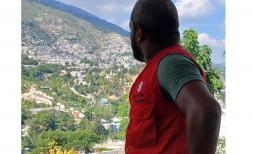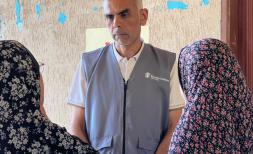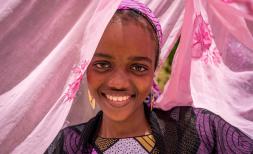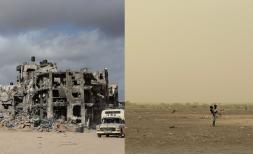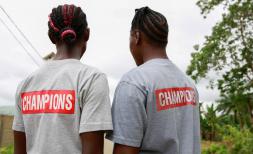The 70th World Health Assembly – seizing the moment to drive action on global immunisation goals
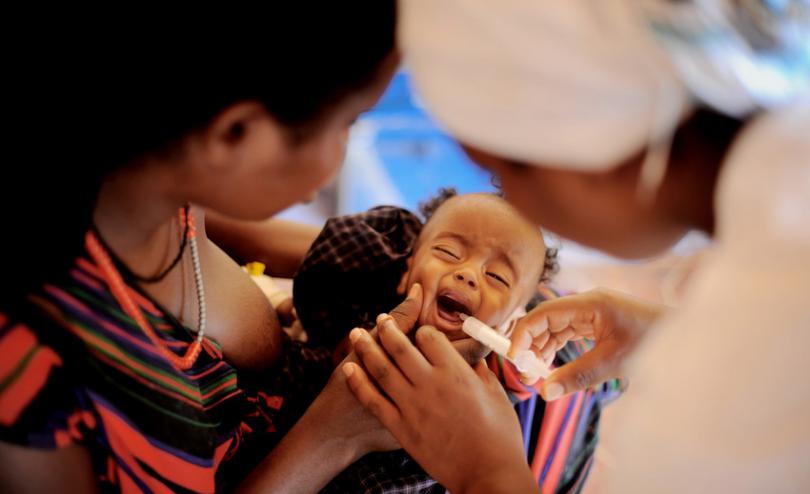
At the 70th World Health Assembly (WHA), the ultimate decision-making body of the World Health Organization (WHO), delegations from 194 countries – along with global health actors, including civil society – will meet in Geneva to discuss and make critical decisions on global health priorities. And this year, immunisation is high on the agenda!
The GVAP, a global commitment to immunisation for all
This year’s WHA represents the mid-point of the Global Vaccine Action Plan (GVAP) – a global framework to prevent millions of deaths by 2020 through improved access to immunisation for all people in all communities. Recognising the importance of immunisation, all 194 Member States endorsed the 2011–2020 plan at the WHA in 2012, marking their commitment to achieve universal immunisation coverage. More recently, in January 2017, African Heads of State adopted the Addis Declaration on Immunization (ADI), reinforcing GVAP goals for the continent.
A key objective of the GVAP is to ensure that all people get equal access to immunisation. It calls for over 90% national coverage of the most basic vaccinations (i.e. three doses of a diphtheria-tetanus-pertussis containing vaccine/DTP3) and over 80% coverage in every district by 2015, with the same target for all vaccines in national programmes by 2020. It also calls for sustainable financing, strong health systems and national commitment.

At the mid-point of the GVAP, where do we stand?
Despite global immunisation progress – 86% of children now receive basic vaccinations – the GVAP is significantly off track. Four of the five GVAP goals are not on course to be met. In 2015, 68 countries fell short of the target to reach 90% DTP3 coverage. 19.4 million children under one year old globally – one in seven – are still excluded from basic immunisation. Our recent report, Further, Faster, Fairer: Reaching every last child with immunisation, shows that these children are from the poorest households, certain ethnic groups, living in neglected areas, and affected by conflict and emergencies. They are unfairly left behind from progress.
Our projections suggest that only eight of the countries that are currently below 90% national coverage will reach this goal by 2020 based on current progress. WHO’s Strategic Advisory Group of Experts (SAGE) on Immunisation expressed grave concern in their recent GVAP assessment report that progress towards many of the goals is too slow. We echo these concerns. Without accelerated action, the commitment to achieve universal immunisation coverage will go unfulfilled.
We must accelerate progress to achieve immunisation goals
Save the Children has continued to advocate for every last child to have access to immunisation, as part of their right to health (see recent Lancet Global Health piece). We have been calling on countries to prioritise equity and strengthening health systems that can reach all children with immunisation and other essential health services, as part of Universal Health Coverage
We have also been calling on countries to increase domestic investment to strengthen routine immunisation and other essential health services. This is particularly important for low-income countries as they transition away from donor aid, including from Gavi and the Global Polio Eradication Initiative. Donor countries also have a role to play and should support countries to strengthen their health systems and increase domestic fiscal space for health and immunisation.

What is Save the Children calling for at the WHA?
Save the Children is calling on Member States at the WHA to commit to accelerate action to achieve global immunisation goals by:
Supporting a strong resolution on the GVAP that prioritises equity and strengthened health systems that can reach all children with immunisation as part of Universal Health Coverage, while emphasising accountability on previous resolutions and SAGE recommendations.
Making clear and time-bound commitments, outlining concrete actions to improve equity, accelerate progress and improve domestic financing for health and immunisation. Donor governments should make commitments to support countries to drive progress on this.
This year’s WHA is a critical opportunity to reinvigorate action and for countries to show their commitment to accelerate progress on the GVAP. We must act now to make universal immunisation coverage a reality.
